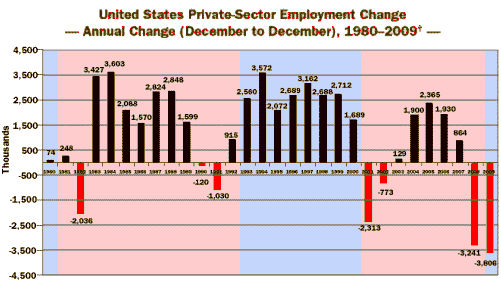Posted on Monday 2 November 2009
I guess I thought I could write about Dick Cheney’s obvious psychological deterioration [Cheney’s damned spot…] and lay things to rest, but that just didn’t happen. Since I read his F.B.I. Interview and wrote that bit, all the stuff from the Plame Leak days came flooding back. It was in 2005, rooting around about Judith Miller being threatened with imprisonment that my then inchoate feeling that we were not just in the hands of Republicans, but in the hands of crooks began to crystalize. Having once been threatened with jail for refusing to testify myself, I started off being sympathetic. But the more I read about Judith Miller, the worse I felt. Her prewar articles were shameful. By the time I read them, the New York Times had already apologized. But I could just tell that she was a player in the Administration’s War Plans, whether she knew it or not.
That was when I let myself know that the Invasion of Iraq was a fraud. I was still working when we invaded, closing my practice in preparation for retirement. But from the first mention of Iraq, I had thought they were wrong. I read Powell’s UN speech and thought the case was forced at best. But it was in 2005, around the time that Miller was in the news for refusing to divulge her sources, that I really let myself know that they had been lying. That phrase, let myself know, comes from years as a psychoanalyst. Over and over, I saw people struggle not to know things because the consequences of knowing might have a huge impact on their lives – often negative. Then one day, they would let themselves know – and find freedom from their previous tension. I thought of Freud’s comment, "… turning neurotic misery into everyday unhappiness" repeatedly over the years. I guess that like many of us, I resisted knowing that our two highest public officials were lying through their collective teeth – everyday unhappiness of the worst kind.
Now, years later, reading Cheney’s F.B.I. Interview [Cheney interview] brings it all back – the Niger Forgeries, the Wars, the Valerie Plame outing, the Libby Trial, the Military Contractors, the U.S. Attorney firings, the disappeared White House emails, Unwarranted Domestic Surveillance, Extraordinary Rendition, the OLC Memos, Torture, the list gets longer and longer. Nick Baumann at Mother Jones composed a list of all the things Cheney didn’t recall in that interview[22 Things Dick Cheney Can’t Recall About the Plame Case] – in and of itself, a stinging indictment. It was less than a year between the interview and the events – a year when something about all of this was in the papers almost daily. But by Cheney’s account, the Joseph Wilson editorial [What I didn’t find in Africa] was merely a blip in his day – nothing of consequence, nothing worth remembering.
What he says cannot possibly be true. But after all these years, the hardest thing for me to reconcile is that Cheney is a conscious liar. He says things he absolutely knows aren’t true, then acts indignant when he’s doubted. I think that’s why we all write about him so much. We need to "prove" that he’s not telling the truth over and over, because his demeanor suggests otherwise. He still seems like a Wise Old Man, in spite of the sea of evidence to the contrary.
Cheney refused to release the reporters he spoke with of confidentiality. Now, over the course of his interview, Cheney was asked and he denied speaking with Novak and Cooper [and claimed to have no knowledge of discussions with Judy]. The sole key journalist in question he didn’t deny any knowledge about was Woodward [and, though less important, Andrea Mitchell]. But he basically denied speaking to any journalist. And then he refused to sign a waiver of confidentiality over his conversations with journalists. Couple that with a few more data points.
… I told the grand jury about my last encounter with Mr. Libby. It came in August 2003, shortly after I attended a conference on national security issues held in Aspen, Colo. After the conference, I traveled to Jackson Hole, Wyo. At a rodeo one afternoon, a man in jeans, a cowboy hat and sunglasses approached me. He asked me how the Aspen conference had gone. I had no idea who he was.
"Judy," he said. "It’s Scooter Libby."
The grand jurors wanted to know what was on my mind, and I told them. The White House had done something it hardly ever does: it admitted a mistake. Shortly after Wilson’s piece appeared, the White House said that the African uranium claim, while probably still true, should not have been in the President’s State of the Union address because it hadn’t been proved well enough. That was big news as the media flocked to find out who had vetted the President’s speech. But at the same time, I was interested in an ancillary question about why government officials, publicly and privately, seemed to be disparaging Wilson. It struck me, as I told the grand jury, as odd and unnecessary, especially after their saying the President’s address should not have included the 16-word claim about Saddam and African uranium.
"… For example, the declaration fails to account for or explain Iraq’s efforts to get uranium from abroad,…"
A t·r·u·t·h·o·u·t review of George Tenet’s book, At the Center of the Storm, summarizes the story [Tenet Book Blames White House for "16 Words"]:
The 16 words in question, "the British government has learned that Saddam Hussein recently sought significant quantities of uranium from Africa," were cited by Bush in a January 28, 2003 State of the Union address and were widely seen as the single most important element that helped convince Congress and the public to back an invasion of Iraq.
… Robert Joseph is the official who suggested that the 16 words about Iraq’s supposed attempts to acquire uranium from Niger be included in the State of the Union address. Joseph, formerly the director of nonproliferation at the National Security Council, is now the under secretary of state for arms control – a position once held by John Bolton… Joseph fought to have the language included despite a telephone call he received from Alan Foley, director of the CIA’s nonproliferation, intelligence and arms control center, demanding the 16 words be taken out of Bush’s speech. Joseph has said he did not recall receiving a phone call from Foley…Foley had revealed the details of his conversation with Joseph during a closed-door hearing before the Senate Select Committee on Intelligence back in July 2003 – just two weeks after Wilson wrote an op-ed in the New York Times documenting his role investigating whether Iraq tried to acquire uranium from Niger… Foley said he had spoken to Joseph a day or two before President Bush’s January 28, 2003 State of the Union address and told Joseph that detailed references to Iraq and Niger should be excluded from the final draft… Joseph had agreed to water down the language and would instead, he told Foley, attribute the intelligence to the British, which is exactly how Bush’s speech was worded.
Tenet wrote that he believes the administration was excited about the prospect of removing Saddam Hussein from power and ignored his previous warnings about the bogus intelligence in order to win support for the war. "The vision of a despot like Saddam getting his hands on nuclear weapons was galvanizing" and "provided an irresistible image for speechwriters, spokesmen, and politicians to seize on"…
The memo says: "On January 12, 2003," the State Department’s Bureau of Intelligence and Research (INR) "expressed concerns to the CIA that the documents pertaining to the Iraq-Niger deal were forgeries."
Iraq’s interest in the yellowcake caught the attention of Mohamed ElBaradei, the head of the International Atomic Energy Association. ElBaradei read a copy of the National Intelligence Estimate and personally contacted the State Department and the National Security Council in hopes of obtaining evidence so his agency could look into it.ElBaradei sent a letter to the White House and the National Security Council (NSC) in December 2002, warning senior officials he thought the documents were forgeries and should not be cited by the administration as evidence that Iraq was actively trying to obtain WMDs. ElBaradei said he never received a written response to his letter, despite repeated follow-up calls he made to the White House, the NSC and the State Department.
Vice President Dick Cheney, who made the rounds on the cable news shows that month, tried to discredit ElBaradei’s conclusion that the documents were forged. "I think Mr. ElBaradei frankly is wrong," Cheney said. "[The IAEA] has consistently underestimated or missed what it was Saddam Hussein was doing. I don’t have any reason to believe they’re any more valid this time than they’ve been in the past."
… the memo’s author, Carl Ford, said in a previous interview that he has no doubt the State Department’s reservations about the Niger intelligence made their way to President Bush, Vice President Cheney, and Secretary of Defense Donald Rumsfeld. One high-ranking State Department official said that when the department’s analysts briefed Colin Powell about the Niger forgeries, Powell met with former Director of the CIA George Tenet and shared that information with him. Tenet then told Vice President Dick Cheney and then-National Security Adviser Condoleeza Rice and her former deputy, Stephen Hadley, that the uranium claims were "dubious," according to current and former State Department and CIA officials who have direct knowledge of what Tenet discussed with the White House at the time.
The White House has long maintained that they were never briefed about the State Department’s or the CIA’s concerns related to the Niger uranium claims.
"I refuse to believe that the findings of a four-star general and an envoy the CIA sent to Niger to personally investigate the accuracy of the intelligence, as well as our own research at the State Department, never got into the hands of President Bush or Vice President Cheney. I don’t buy it," said a high-ranking State Department official. "Saying that Iraq sought uranium from Niger was all it took, as far as I’m concerned, to convince the House to support the war. The American people too. I believe removing Saddam Hussein was right and just. But the intelligence that was used to state the case wasn’t."
A State Department official who has direct knowledge of the now declassified INR memo said when the request came from Cheney’s office for a report on Wilson’s Niger trip it was an opportunity to put in writing a document that would remind the White House that it had been warned about the Niger claims early on. Many other State Department officials believed that the existence of a memo that would, in essence, disagree with the White House’s own assessment on Niger would eventually hurt the administration.
"This was the very first time there was written evidence – not notes, but a request for a report – from the State Department that documented why the Niger intel was bullshit," said one retired State Department official. "It was the only thing in writing, and it had a certain value because it didn’t come from the IAEA. It came from State. It scared the heck out of a lot of people because it proved that this guy Wilson’s story was credible. I don’t think anybody wanted the media to know that the State Department disagreed with the intelligence used by the White House. That’s why Wilson had to be shut down."
"I don’t think anybody wanted the media to know that the State Department disagreed with the intelligence used by the White House." Thus spoke one retired State Department official. And it has the ring of truth. I would say it a different way, but the meaning remains the same. In my version, they attacked Joseph Wilson with uncharacteristic recklessness because of one simple word he used: "twisted."
They had spent a year trying to muster a reason to attack Iraq. Cheney and Addington wanted Bush to just do it using his powers as Commander-in-Chief, but he balked. So they embarked on a quest for reasons. Paul Wolfowitz and Douglas Feith built the case that Saddam Hussein was in cahoots with al Qaeda [a very shaky fabricated case] which they ultimately leaked to the Weekly Standard. They tortured prisoners to try to extract an admission that Iraq and al Qaeda were in league. One prisoner said it, then recanted [Ibn al-Shaykh al–Libi]. He was turned over to Lybia where he was imprisoned and recently either committed suicide or was killed. They had a shipment of Aluminum Tubes, but Bush was repeatedly warned that this was very shaky intelligence [Insulating Bush]. All they really had was the Niger Yellowcake Uranium story.
On September 8, 2002 they played their cards and began the campaign to Invade Iraq [smoke and mirrors: 09/08/2002…] with a New York Times piece by Judith Miller and appearances by Dick Cheney on Meet the Press and Condoleeza Rice on CNN. But over the next few months, their story began to crumble [as it should have]. So the "sixteen words" became the critical centerpiece. "Saying that Iraq sought uranium from Niger was all it took, as far as I’m concerned, to convince the House to support the war. The American people too." Thus spoke a high-ranking State Department official. …
Cheney had spent his career wheeling and dealing in the background, but never really got himself into trouble. This time, he was already in trouble, and he became uncharacteristically careless. Back then, lots of people in the Administration didn’t care whether we had the facts right or not. They wanted to go after Hussein no matter what. I suppose had they gotten lucky and found a WMD or two, or had the war worked out [the advertised "open arms" greeting], things might have played out in his favor. But they found nothing and the war didn’t work. Nor did outing Valerie Plame, not in the long run. It just put Wilson’s confrontation on the front page. So, we know the answer to Cooper’s Conundrum now. They went after Joseph Wilson because he told the truth — the truth that they lied.
I doubt that most Americans even know the characters in this story – Joseph Wilson, Valerie Plame, Matthew Cooper, Judith Miller, Rocco Martino [the Niger Forger]. And while they might vaguely know one or another piece of the story, the whole plot is something of a blur. They can’t help knowing that the Invasion of Iraq was a failed enterprise – that Bush and Cheney were wrong to take us there in the first place. But I think they do actually know that Cheney lied to get us to go to war with Iraq, but don’t let it sit near the front of their minds. Where I live in the middle of Republicana, I still occasionally see an old truck with a frayed, faded, patriotic sticker on the bumper [five years ago, they covered every flat surface on almost every car]. The weekly paper has the occasional anti-Obama letter, but they never mention George W. Bush or Dick Cheney – or for that matter, even Iraq. It’s like it didn’t happen.


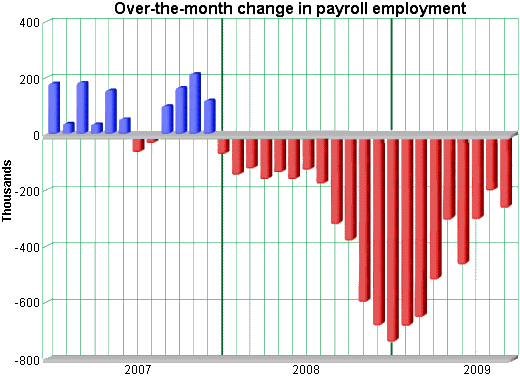





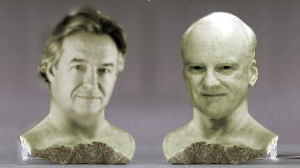
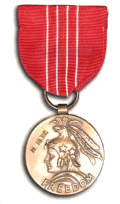 Which brings me to the winners of the 1boringoldman medal of freedom awards for 2009. Joseph Wilson and Richard Clarke were the two people who stood up and spoke out long before it was fashionable, long before the rest of us even knew there was something to speak out about. Richard Clarke lost his career, his reputation, and has had to endure "snark" for telling the truth. Joseph Wilson’s wife, Valerie Plame, lost her career, her reputation and her anonymity. They are two American heros, the real kind. I propose busts in the Rotunda of Congress to commemorate their service.
Which brings me to the winners of the 1boringoldman medal of freedom awards for 2009. Joseph Wilson and Richard Clarke were the two people who stood up and spoke out long before it was fashionable, long before the rest of us even knew there was something to speak out about. Richard Clarke lost his career, his reputation, and has had to endure "snark" for telling the truth. Joseph Wilson’s wife, Valerie Plame, lost her career, her reputation and her anonymity. They are two American heros, the real kind. I propose busts in the Rotunda of Congress to commemorate their service.  Most of us have a piece of this inside of us – something we did that worked out to have cataclysmic negative consequences – something done casually, selfishly, naively, or even stupidly. I sure do. I doubt there’s any physician who hasn’t made a fatal error. Such things happen in regular life too, but there are some places where they show in bas-relief. Medical practice is such a place. I’ll bet battlefield commanders have the same experience. Then there’s being Vice President, if you’ve inserted yourself into the decision-making process like Cheney did.
Most of us have a piece of this inside of us – something we did that worked out to have cataclysmic negative consequences – something done casually, selfishly, naively, or even stupidly. I sure do. I doubt there’s any physician who hasn’t made a fatal error. Such things happen in regular life too, but there are some places where they show in bas-relief. Medical practice is such a place. I’ll bet battlefield commanders have the same experience. Then there’s being Vice President, if you’ve inserted yourself into the decision-making process like Cheney did.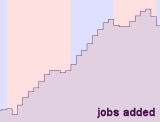 We’ll never say the Bush years were boring. They started with the election controversy in 2000 and ended with our current Depression. In between, there was the nightmare of 9/11; two Middle Eastern Wars; enough dirty tricks for a two week seminar; and unimaginable economic wheeling and dealing. How all of that lead us to a financial crisis is increasingly clear, but the path out disappears into an impenetrable fog bank. The question is most often framed as, "where are the jobs going to come from?" In my last several posts, I documented and wailed about the fact that the net gain in jobs during the entirety of the Bush Administration was nada – zipola – near zero. Is America out of "job juice?" or did the Administration do something to hinder job production? or is it because of some unfortunate confluence of forces [something we can rectify]?
We’ll never say the Bush years were boring. They started with the election controversy in 2000 and ended with our current Depression. In between, there was the nightmare of 9/11; two Middle Eastern Wars; enough dirty tricks for a two week seminar; and unimaginable economic wheeling and dealing. How all of that lead us to a financial crisis is increasingly clear, but the path out disappears into an impenetrable fog bank. The question is most often framed as, "where are the jobs going to come from?" In my last several posts, I documented and wailed about the fact that the net gain in jobs during the entirety of the Bush Administration was nada – zipola – near zero. Is America out of "job juice?" or did the Administration do something to hinder job production? or is it because of some unfortunate confluence of forces [something we can rectify]?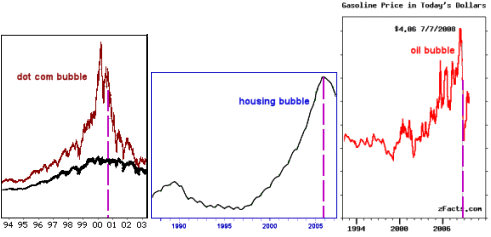
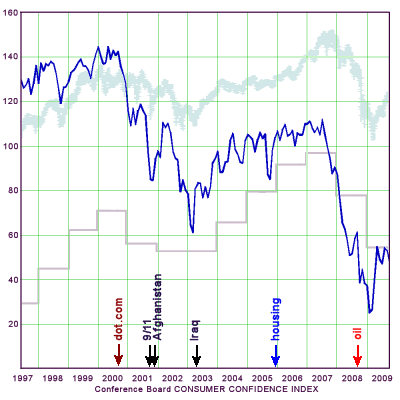
 It’s hard to fathom how a small group of people could take over our government with a lofty mission called The Project for the New American Century, and for us to now be in the shape we’re in heading into the only second decade of that self-same century. We’re all tired of hearing about how the Administration spent its time obsessed with foreign wars, with torture, with secret programs, with dirty tricks, and with their glorious surge. But the things they didn’t do are beginning to dawn on us – or maybe fall all over us would be more like it. They didn’t attend to a runaway financial industry that had received its green light at the end of the Clinton Presidency with the Gramm-Leach-Bliley Act of 1999 and the Commodity Futures Modernization Act of 2000. They ignored the Housing Bubble, the Sub-Prime Mortgages, the Oil Bubble, Derivatives, and countless other fiscal misbehaviors that should have been attended to. I’m not even sure they were looking.
It’s hard to fathom how a small group of people could take over our government with a lofty mission called The Project for the New American Century, and for us to now be in the shape we’re in heading into the only second decade of that self-same century. We’re all tired of hearing about how the Administration spent its time obsessed with foreign wars, with torture, with secret programs, with dirty tricks, and with their glorious surge. But the things they didn’t do are beginning to dawn on us – or maybe fall all over us would be more like it. They didn’t attend to a runaway financial industry that had received its green light at the end of the Clinton Presidency with the Gramm-Leach-Bliley Act of 1999 and the Commodity Futures Modernization Act of 2000. They ignored the Housing Bubble, the Sub-Prime Mortgages, the Oil Bubble, Derivatives, and countless other fiscal misbehaviors that should have been attended to. I’m not even sure they were looking.